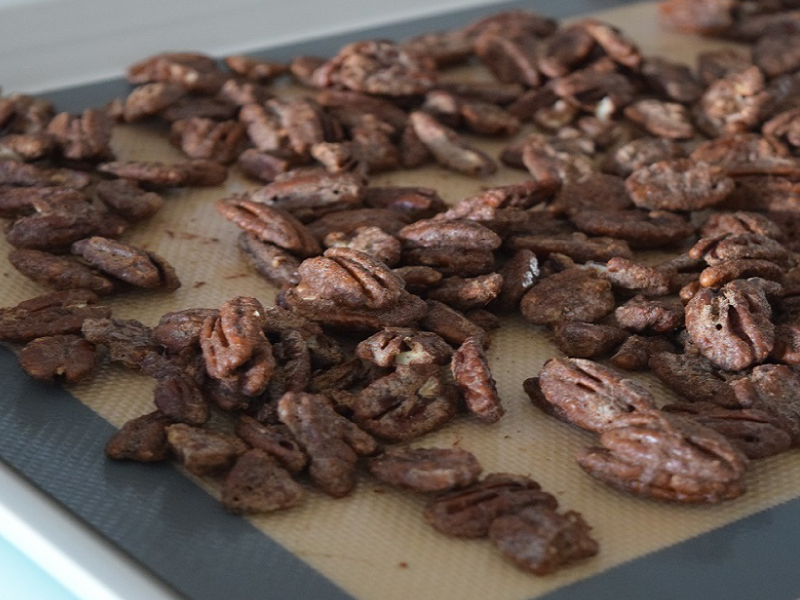Own a nutcracker? These pecans are a healthy holiday treat
By American Heart Association News

Want a holiday snack that's packed with nutrition? Pick up some pecans.
Nuts are considered heart-healthy. They're part of the blood pressure-lowering DASH diet and full of "good" fats, protein, fiber, vitamins and minerals, said Ginny Ives, a registered dietitian and director of nutrition at the Cooper Clinic in Dallas.
Pecans are a standout nut, though.
"They actually have the most fiber of any other nut," Ives said, with about 3 grams per 1-ounce serving, "and they're also the lowest in carbs." They're a good source of thiamin, zinc, and the trace minerals copper and manganese.
"They also contain micronutrients known as phytonutrients," which have been shown to reduce inflammation, she said.
Pecans, as well as nuts in general, can help in weight maintenance, Ives said. They're high in fat, which helps people feel full. Eating them as a snack or adding some to a salad or cereal "can help our food to stick with us a little longer and help us to feel more satisfied, so we don't overeat."
An ounce of pecans – 19 pecan halves – has 196 calories, so don't go overboard. Ives recommends a single 1-ounce serving a day and said they're great toasted. Bake them for 10 to 12 minutes at 325 degrees, occasionally shaking the pan. You can store pecans for up to two years in the freezer.
For extra flavor, try this recipe. The spices provide layers of sweetness without excess added sugar. Serve the nuts as a festive snack or use them as a topping for yogurt or in your favorite salad.
If you have questions or comments about this story, please email [email protected].





